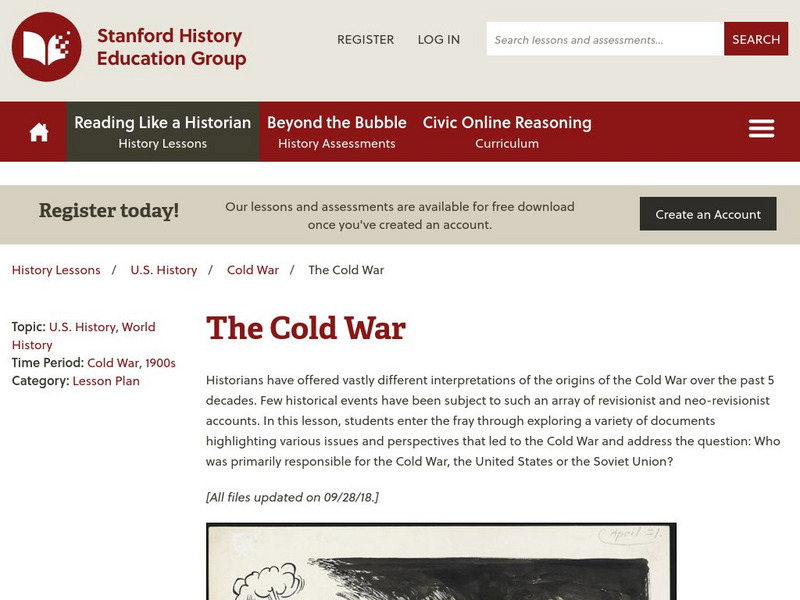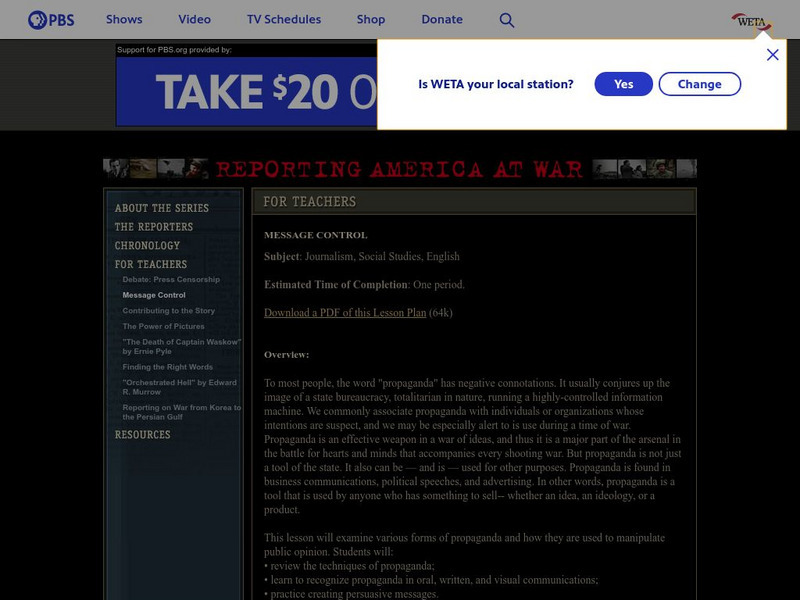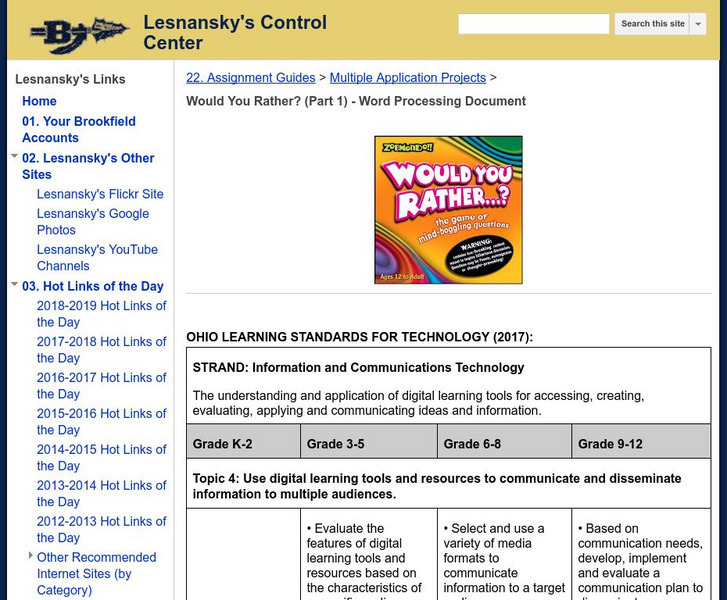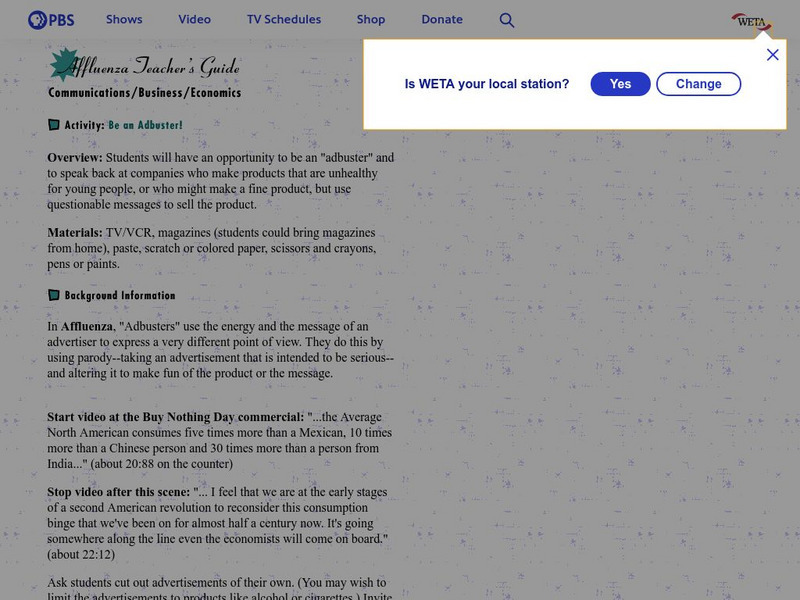Hi, what do you want to do?
Other
Western Australia Department of Health: Online vs Face to Face Communication
Students discuss the similarities and differences between online and face-to-face communication. They also research and explore protective strategies to ensure they communicate safely using technology.
Stanford University
Stanford History Education Group: Cold War
[Free Registration/Login Required] A comprehensive social studies unit honing in on the Cold War. Students will rely on various resources covering topics like the Cuban Missile Crisis, Truman and MacArthur, and the Korean War, to analyze...
PBS
Pbs: Message Control (Lesson Plan About Propaganda)
A lesson plan that guides learners through an examination of various forms of propaganda and how propaganda is used to manipulate public opinion. Includes research into the history of propagandistic communications.
Other
Federal Emergency Management Agency: Earthquake Safety Activities [Pdf]
A 74-page booklet of activities that teach about earthquakes and what to expect when one strikes, what one can do to prepare for them, and ways to stay safe during an earthquake and afterwards.
Arizona State University
Arts Work: Communicating Feelings Through Shape & Color
A lesson plan to help students understand the use of symbols and images to express their feelings through their artwork. A great lesson plan to boost students' self esteem. Has a link to a site with examples of Kandinsky's work.
Arizona State University
Arts Work: Communicating Feelings Through Shape & Color
A lesson plan to help students understand the use of symbols and images to express their feelings through their artwork. A great lesson plan to boost students' self esteem. Has a link to a site with examples of Kandinsky's work.
Other
Brookfield High School: Lesnansky's Control Center: Would You Rather? (Part 2)
In this activity, students will create a customized Google Form that will showcase the four dilemmas defined by the game cards from Would You Rather...? and then share the form with others to collect data for analysis. Lots of Would You...
Other
Brookfield High School: Lesnansky's Control Center: Would You Rather? (Part 1)
In this activity, young scholars will create a word processing document that will define four dilemmas in the game cards from Would You Rather? Lots of Would You Rather question examples can be found online. (The Part 2 lesson can be...
PBS
Pbs Lesson Plan (Affluenza): Be an Adbuster
Through an integrated approach from PBS, students examine the messages conveyed in print advertisements. Using parody, students are asked to alter the message of an ad to present a different or opposite point of view. Lesson may be more...










